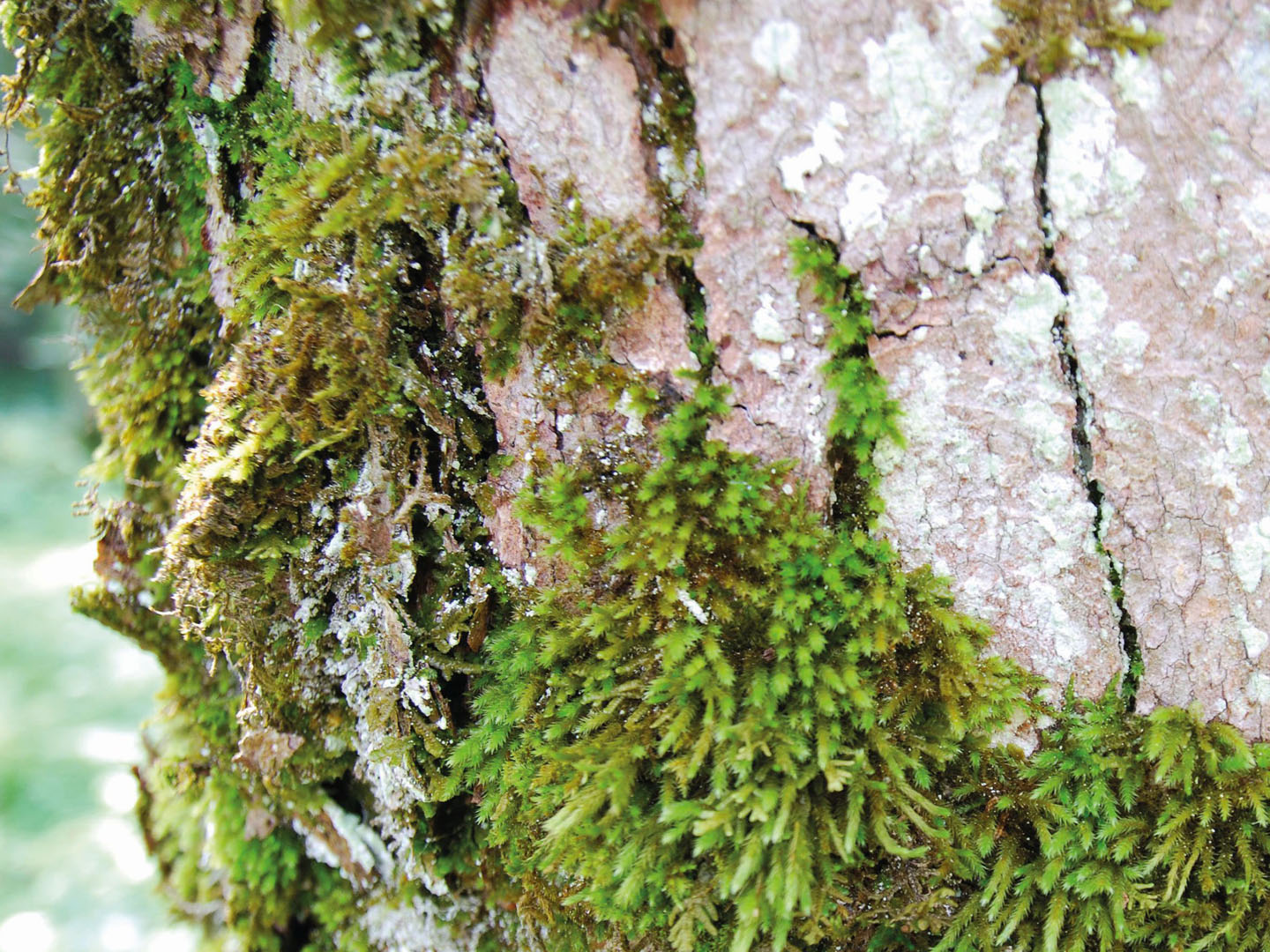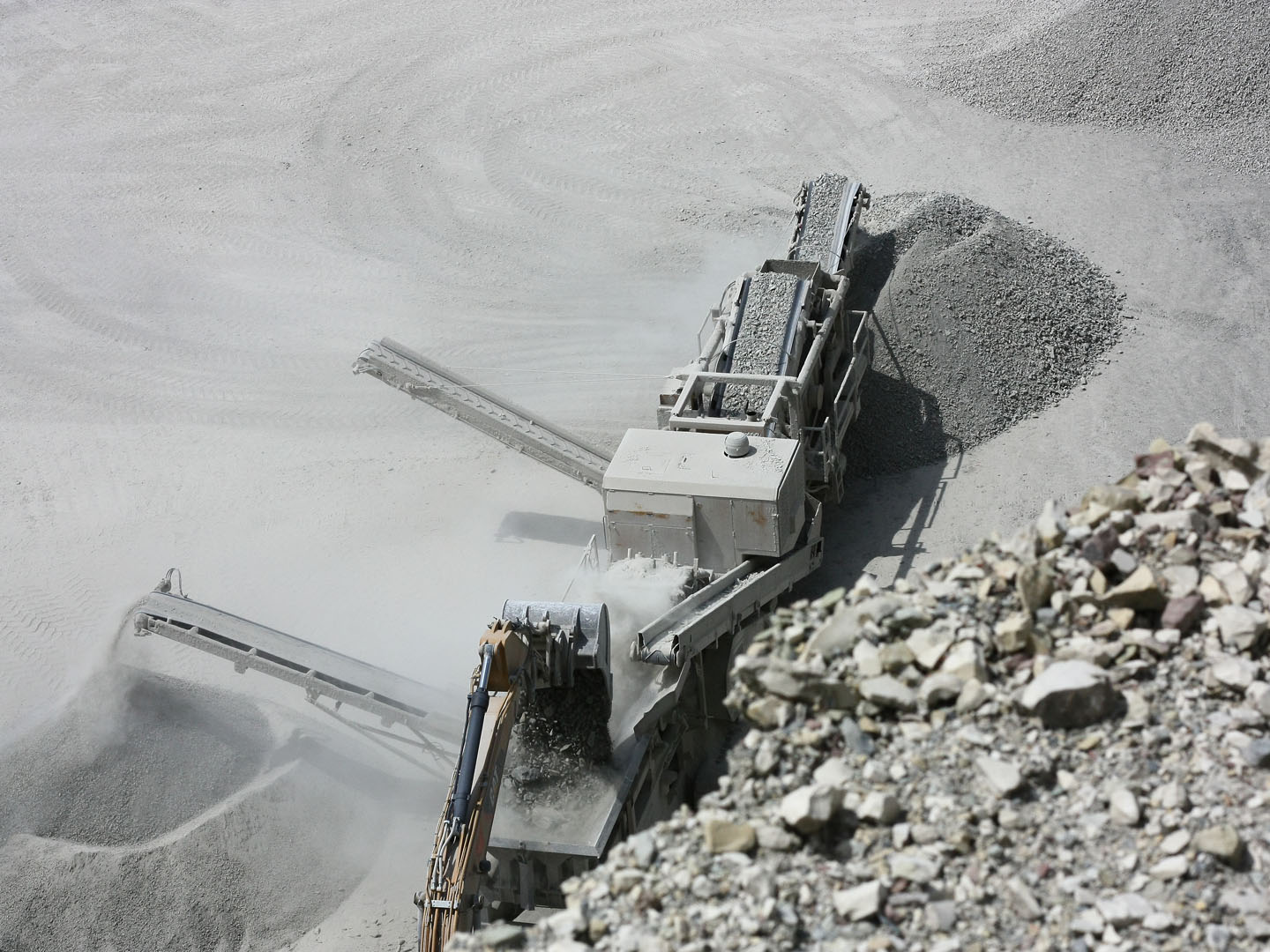Fraunhofer UMSICHT at BAU 2019
Mosses on the wall, vegetables from the roof and recycled rubble – new concepts for life in the green city
More and more people live in cities, so that innovative processes and systems for urban greening are becoming increasingly important. New recycling pro-cesses and recyclable products must be developed at the same time to ensure resource-saving growth in the booming construction industry. At the BAU 2019 trade fair in Munich from January 14 to 19, Fraunhofer UMSICHT will be presenting three different projects that can make urban space even more liv-able, efficient and sustainable in the future.


According to United Nations forecasts, almost 70 percent of the world’s population will be at home in the urban environment in a good 30 years. With this development, it is becoming increasingly important to integrate green spaces into urban areas. Through the clever combination of nature and technology, and the development of smart materials, structures, and surfaces, the greening of urban areas can have a multitude of positive effects on people as well as on the urban and building climate.
In addition, urbanization is leading to a rapidly growing residential construction sector, for which around 600 million metric tons of mineral raw materials are used annually in Germany alone. New recycling concepts and alternative sources of raw materials for the construction industry are needed to conserve natural resources in the future and achieve sustainable growth in the construction industry. Challenges for which Fraunhofer UMSICHT is presenting innovative solutions and strategies at the BAU 2019 trade fair in Munich.
Substrate system for vertical moss growth
“VerticalGreenMoss” pursues the development of a substrate system for extensive, controlled and time-optimized moss growth in a vertical direction. The project concerns a method that has been little researched so far. Although mosses often grow vertically in their natural ecosystem, long-term successful targeted technical cultivation has not yet been achieved. As part of the BMBF’s “GO-Bio” funding measure, the “VerticalGreenMoss” project is addressing this challenge.
In the project, relevant parameters for vertical moss growth in the wild are determined, and data on natural substrates and sites are collected and analyzed. The basis for the structuring of technically produced substrates are impressions of natural surfaces and the investigation of the substrate topology. Based on these results, suitable substrate surfaces are then developed, implemented using modern 3D printing technology, and injected with moss fragments or spores. For optimization, the surfaces can be supplemented with active substances – in combination with or following 3D printing. Experimental studies on moss cultivation provide valid data on the success of colonization and on the determination of the growth rate.
Further information is available at: www.bryo-engineering.com
Sustainable concept for urban food production
Due to more and more densely populated conurbations, undeveloped areas in urban areas are becoming increasingly scarce. With sustainable and resource-saving concepts, Fraunhofer UMSICHT integrates agriculture into buildings under the umbrella brand “inFARMING®”, thus enabling the production and supply of food and active ingredients in a regional and comprehensive context. The building or quarter provides energy, water, and nutrients as a resource for agricultural use.
Researched and tested in the institute’s own photonics laboratory, innovative materials and cultivation systems, specific light scenarios, and newly developed circulation processes for nutrients, water, and energy ensure an effective link between production systems and building infrastructures.
As the first reference project, the “ALTMARKTgarten” in Oberhausen will implement the “inFARMING®” concept in the building-integrated roof greenhouse after its completion at the beginning of 2019. On behalf of OGM Oberhausener Gebäudemanagement GmbH and in cooperation with the city of Oberhausen, a new office building is being built there, which is unique in Germany to date due to the possibility of producing sustainable and regional food on the roof in this form.
With the technologies developed by Fraunhofer UMSICHT, water flows or waste heat from the building can be used to supply to the plants, transport routes can be minimized, waste reduced, and material cycles efficiently closed.
Further information is available at: www.infarming.de
The project “Altmarktgarten – System solutions for green in the city, design, and construction of a building-integrated roof greenhouse for sustainable plant production and as a nucleus for urban culture and innovation processes” is funded by the Federal Ministry for the Environment, Nature Conservation, Construction and Nuclear Safety within the framework of the Federal Program “National Urban Development Projects”.
Building rubble becomes homogeneous building products
Urban housing, in particular, is contributing to the fact that there is currently a construction boom in Germany. Primary raw materials such as sand or gravel are usually used for construction, as only five percent of the building rubble is returned to the construction industry annually as a high-quality product for use in building construction. The building rubble that accumulates usually ends up in road and path construction and, depending on the pollutant load, often in landfills, and is thus finally withdrawn from further value creation in circular business models.
The Fraunhofer internal project “BauCycle” is developing a holistic recycling strategy for fine-grained building rubble with the aim of converting heterogeneous building rubble back into homogeneous building products. This should reduce the use of primary raw materials, enable more sustainable construction, and also counteract the shortage of landfill space and increasing land consumption.
At the same time, the research consortium of four institutes is working on implementing a dynamic market platform that combines the services of recycling companies with the needs of companies that can process recycled material. The aim is to combine the secondary raw materials from demolition measures, which vary in quantity and quality and are generated at different locations, with established production processes in the building materials industry. “BauCycle” thus not only creates new recyclables for the construction sector, but the project also combines the three business segments product development, sorting technology, and marketing. Since 2016, Fraunhofer UMSICHT, Fraunhofer IBP, Fraunhofer IML, and Fraunhofer IOSB have been working together on the recycling strategy, some of which can also be applied in other sectors, such as glass recycling or the mining industry.
Further information is available at: www.baucycle.de
Fraunhofer UMSICHT is exhibiting at BAU 2019 as part of the joint stand of the Fraunhofer-Gesellschaft (Hall C2, Stand No. 528). Our team is looking forward to your visit.
Last modified:
 Fraunhofer Institute for Environmental, Safety and Energy Technology UMSICHT
Fraunhofer Institute for Environmental, Safety and Energy Technology UMSICHT